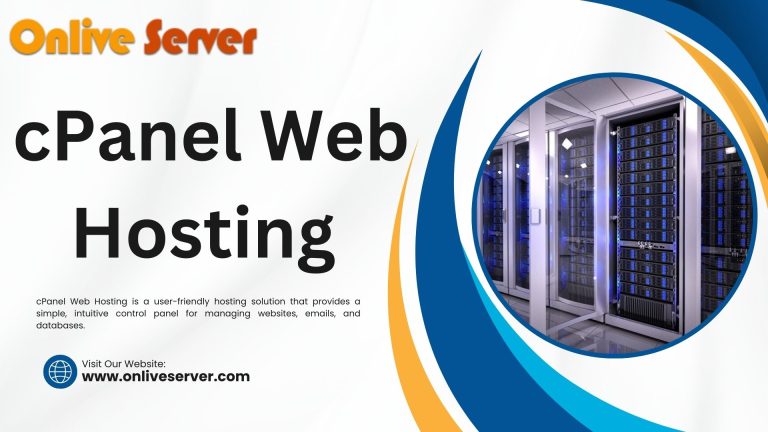Businesses, developers, and organizations need a reliable and high-performance hosting solution. A windows Dedicated Server is an excellent choice for those who require dedicated resources, high security, and seamless compatibility with Windows applications.
If you run resource-intensive applications, high-traffic websites, or enterprise solutions, a Windows dedicated server can offer you unmatched performance. This guide will walk you through everything you need about servers, their benefits, and how to choose the best one for your needs.
Understanding Windows Dedicated Server Fundamentals
A Dedicated Server is a powerful hosting solution where an entire physical server is exclusively allocated to a single user or organization running on a Windows operating system. Unlike shared or VPS hosting, a dedicated server ensures enhanced performance, security, and control by allowing full customization of server resources, including CPU, RAM, and storage. It is ideal for businesses that require high availability, scalability, and robust security features for applications, websites, or databases. With remote desktop access (RDP), users can efficiently manage.
What is a Dedicated Server?
A Dedicated Server is a physical server running on a Windows server operating system and dedicated solely to your business or application. Unlike shared hosting, where resources are distributed among multiple users, a dedicated server ensures 100% exclusive access to CPU, RAM, storage, and bandwidth.
It is ideal for businesses that require complete control over server configurations, advanced security measures, and high performance.
Benefits of Choosing a Windows Dedicated Server
1. High Performance and Reliability
A dedicated server offers superior performance since all server resources are allocated solely to your needs. There is no competition for RAM, CPU, or bandwidth, which ensures optimal performance for your applications and websites.
2. Scalability for Growing Businesses
As your business grows, you may require additional resources. A dedicated server allows you to scale hardware and software configurations effortlessly to meet increasing demands.
3. Enhanced Security
Security is a top priority, especially for businesses handling sensitive data. A dedicated server gives you complete control over security configurations, including firewalls, encryption, and access controls.
4. Customization and Full Control
With a cheapest dedicated server, you have full root/administrative access, allowing you to customize settings, install software, and optimize configurations per your business requirements.
5. Compatibility with Windows Applications
A dedicated servers support Microsoft applications such as ASP.NET, Microsoft SQL Server, Exchange Server, and SharePoint, making them ideal for businesses relying on Microsoft’s ecosystem.
6. 24/7 Technical Support
Many hosting providers offer 24/7 dedicated support for Windows servers, ensuring that any technical issues are addressed promptly.
Key Features of a Dedicated Server
1. Latest Windows Server Operating Systems
Depending on your application compatibility and performance needs, you can choose from different versions of Windows Server, such as 2016, 2019, and 2022.
2. Enterprise-Grade Hardware
Dedicated servers have powerful processors like Intel Xeon and AMD EPYC, high-speed SSD/NVMe storage, and scalable RAM options.
3. Remote Desktop Access (RDP)
With RDP, you can remotely manage and access your dedicated server from anywhere, making it convenient to perform administrative tasks.
4. DDoS Protection and Advanced Security
Most dedicated server providers offer built-in DDoS protection, firewalls, and intrusion detection systems to safeguard your data and services.
5. Backup and Disaster Recovery
Regular backups ensure your data is safe and can be restored in case of system failure or cyber threats.
How to Choose the Best Dedicated Server
1. Assess Your Business Needs
Before selecting a dedicated server, consider factors like traffic volume, storage needs, security requirements, and application compatibility.
2. Check Hardware Specifications
Look for a server with high-performance CPUs, sufficient RAM, and SSD/NVMe storage to handle your workload efficiently.
3. Evaluate Network and Bandwidth Requirements
A hosting provider should offer unmetered bandwidth and high-speed network connectivity to ensure seamless operations.
4. Consider Managed vs. Unmanaged Servers
An unmanaged server may work for you if you have an in-house IT team. Otherwise, opt for a managed dedicated server, where the provider handles maintenance, updates, and security.
Use Cases of a Dedicated Server
1. Hosting High-Traffic Websites
A Windows-dedicated server is perfect for businesses with high-traffic websites, ensuring fast loading speeds and minimal downtime.
2. Running Enterprise Applications
Organizations using Microsoft SQL Server, ERP systems, and CRM software can benefit from the dedicated environment of a Windows server.
3. Game Server Hosting
A dedicated servers are widely used for hosting online multiplayer games, offering smooth gameplay and lower latency.
4. Virtualization and Cloud Hosting
A dedicated server can run multiple virtual machines (VMs) using Hyper-V, making it an excellent choice for cloud-based applications.
5. Remote Desktop Hosting
Businesses offering Remote Desktop Services (RDS) can use a dedicated server to manage multiple remote users securely.
Scaling Your Windows Server Infrastructure
Scaling your Windows Server infrastructure is essential for businesses experiencing increased traffic, expanding workloads, or evolving IT requirements. By leveraging vertical scaling (upgrading server resources like RAM, CPU, or storage) or horizontal scaling (adding more servers to distribute the load), organizations can ensure high availability, improved performance, and seamless user experience. Technologies such as Windows Server Failover Clustering (WSFC), load balancing, and virtualization with Hyper-V help optimize resource utilization and enhance reliability.
Conclusion
In conclusion, a Windows Dedicated Server is a robust and reliable hosting solution that provides complete control, enhanced security, and high performance for businesses and individuals with demanding workloads. Whether hosting large-scale websites, running enterprise applications, or managing databases, a dedicated server ensures optimal speed, stability, and scalability without sharing resources. Users can tailor their server environment to meet specific requirements with customizable configurations, remote desktop access (RDP), and built-in Windows security features.







